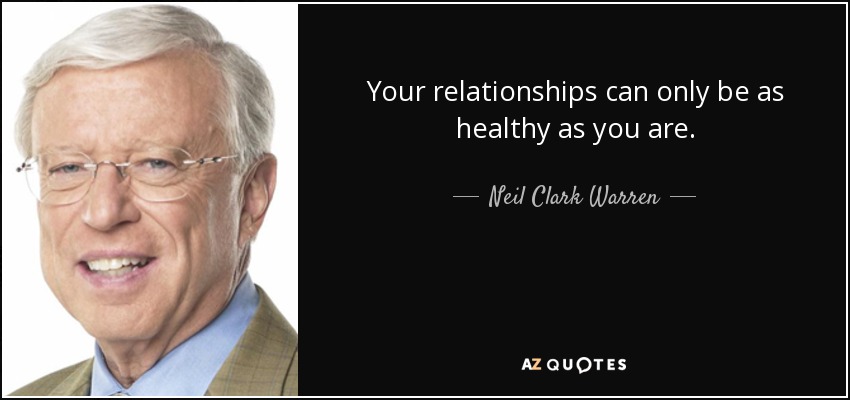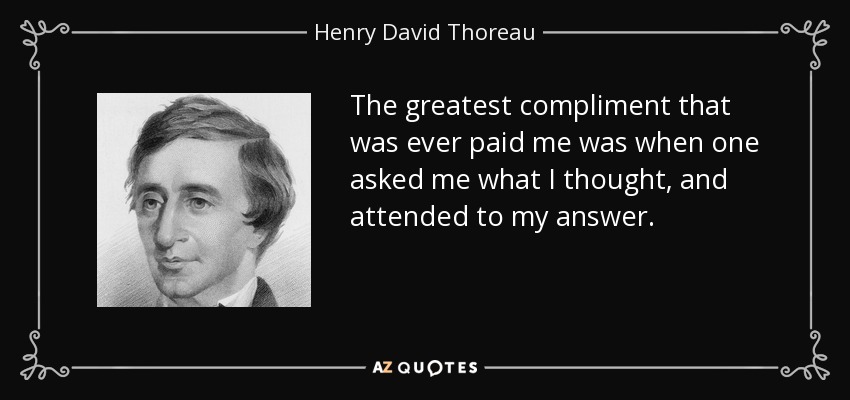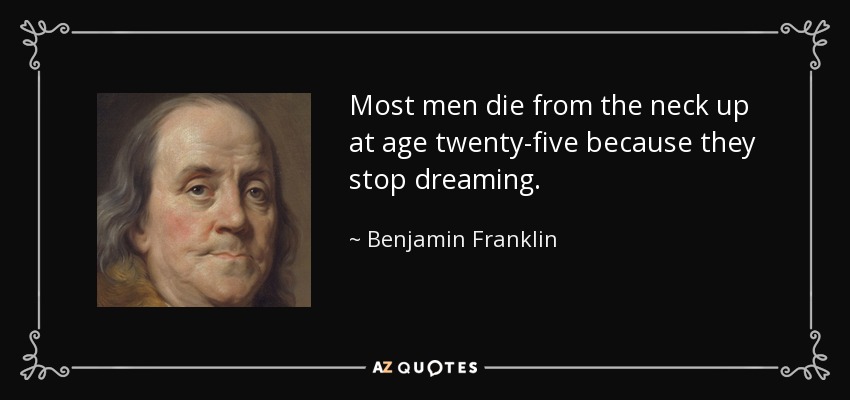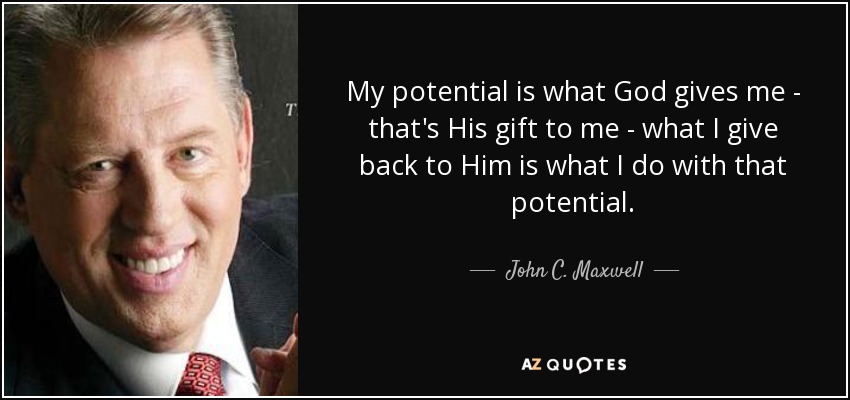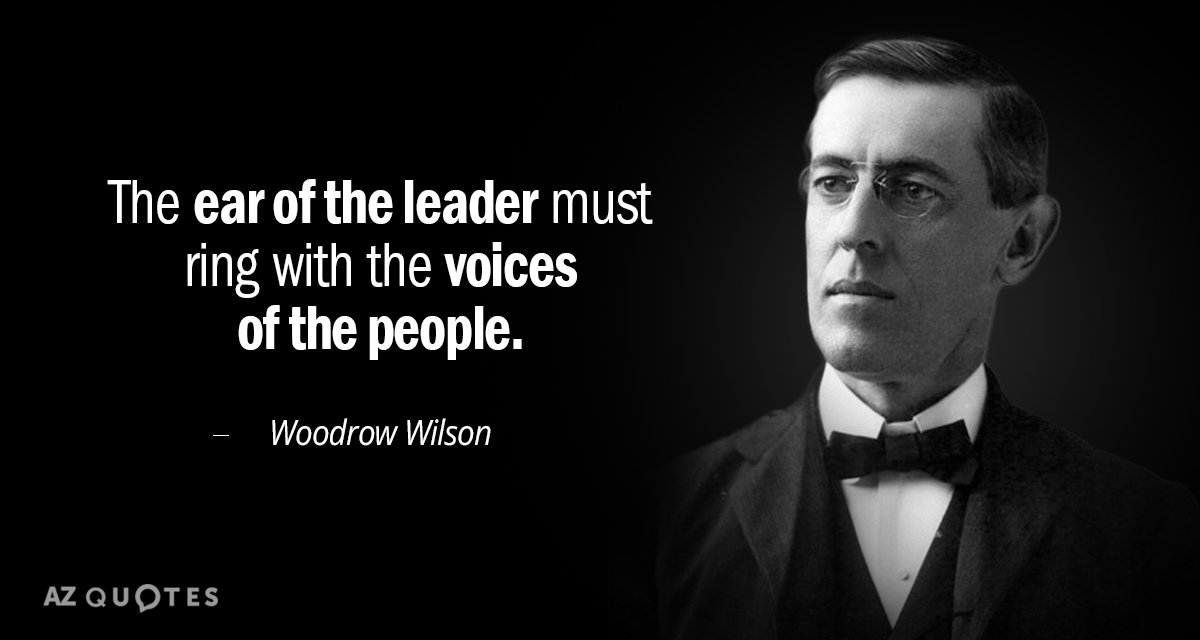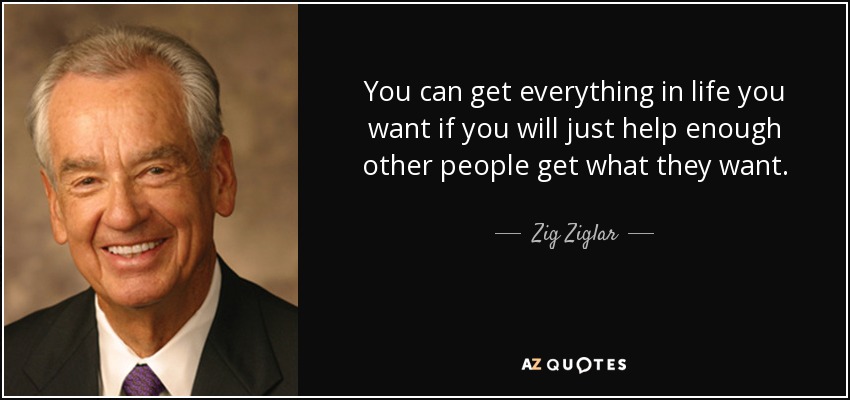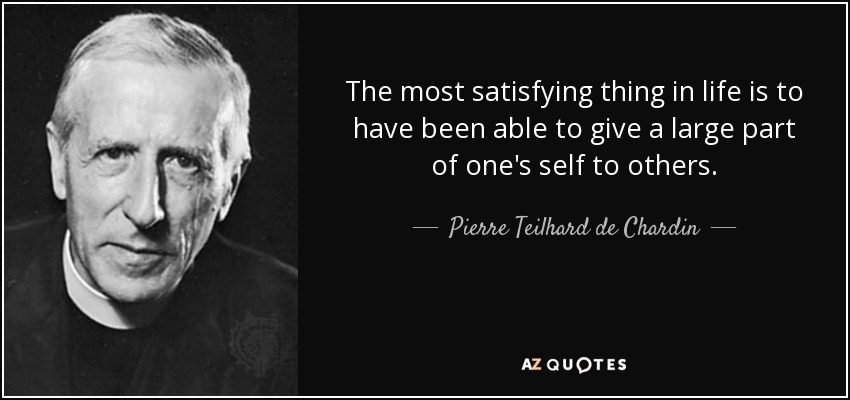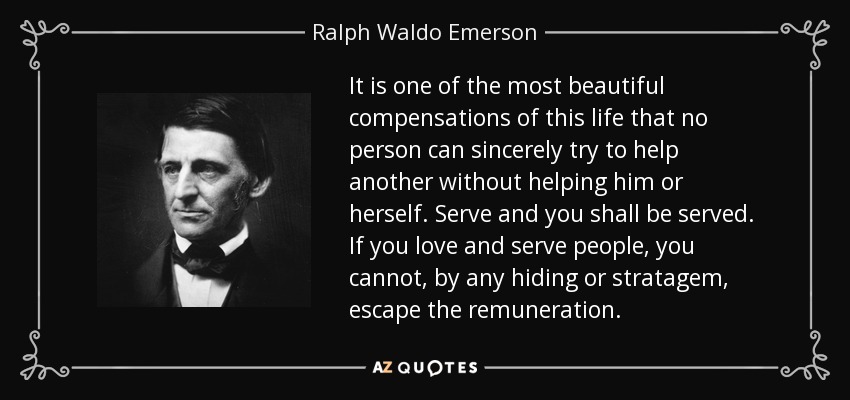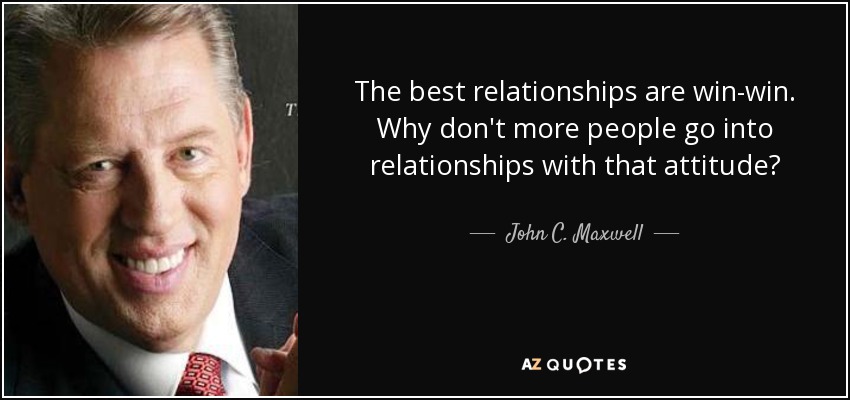Click here to return to Blog Post Intro
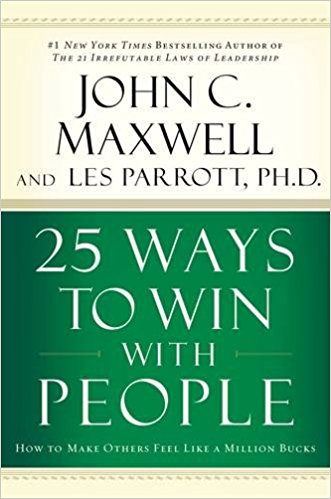
# 1 – Start with Yourself
Build a winning character. Otherwise, you can’t be happy without being healthy; and you can’t give what you don’t have. One advisor told Les, “As a psychologist, you will only be able to take a person as far as you have gone yourself.”
Harry Firestone said, “You get the best out of others when you give the best of yourself.” You need to maximize who you are by overcoming or fixing those things that are within your power to change.
What can you improve about yourself? What specific steps will you take to make those improvements?
# 2 – Practice the 30-Second Rule
Samuel Johnson said, “He who waits to do a great deal of good at once, will never do anything.”
John Maxwell uses the 30-second rule: within the first 30 seconds of a conversation, say something encouraging to a person. Someone once told John, “Be kind…everyone you meet in fighting a hard battle.” People everywhere need a good word, an uplifting compliment to fire their hopes and dreams. It takes very little effort, but it really lifts people up.
All people feel better and do better when you give them attention, affirmation, and appreciation. Benjamin Franklin realized this truth. In a letter to John Paul Jones, he wrote, “If you should observe an occasion to give your officers and friends a little more praise than is their due and confess more fault than you can be justly charged with, you will only become the sooner for it, a great captain.”
Search for ways to make others look good; and give them the Triple-A treatment (attention, affirmation, and appreciation).
# 3 – Let People Know You Need Them
John Maxwell points out that the secret to getting people to join a team is found in a single sentence: “I can’t do it without you.”
The day you realize you can’t do everything yourself is a major step in your development as a person and leader. Steel magnate and philanthropist Andrew Carnegie put it this way, “It marks a big step in your development when you come to realize that other people can help you do a better job than you could do alone.”
Research proved long ago that when people feel needed, they are far more likely to be productive and creative.
# 4 – Create a Memory and Visit It Often
Memories don’t find us—we find them. Even better, if we are intentional, we can make memories.
For years, parents have debated the issue of quality time versus quantity of time. Both Parrott and Maxwell note that their experiences as both fathers and grandfathers suggests that it takes quantity time to find quality time. If you can’t carve out the time, you can’t create the memory.
According to author and research scientist John McCrone, “Almost anything you do today will be forgotten in a few weeks. The ability to retrieve a memory decreases exponentially unless boosted by artificial aids such as diaries and photographs.”
Plan an experience that will commemorate an achievement or milestone that people will talk about years from now. And don’t forget to create a memento of it.
# 5 – Compliment People in Front of Other People
A private compliment turned public, instantly and dramatically increases in value.
Mary Kay Ash says, “Everyone has an invisible sign hanging from his neck that says, ‘Make Me Feel Important!’”
George Matthew Adams said, “Encouragement is oxygen to the soul.”
Compliment someone around you in front of other people today; and remember that when you give a public compliment, you give him or her wings like an eagle.
# 6 – Give Others a Reputation to Uphold
One of the best ways to inspire others and make them feel good about themselves is to show them who they could be.
Dr. J. Sterling Livingston, formerly of the Harvard Business School and founder of the Sterling Institute management consulting firm, observed, “People perform consistently as they perceive you expect them to perform.”
Remember, many people go farther than they thought they could go because someone else believe they could and told them so.
# 7 – Say the Right Words at the Right Time
People who have not been around John Maxwell “up close and personal” are sometimes surprised to find out how good he is at saying the right words at the right time. They’re used to his public persona as a speaker, where he also excels at communication and timing. But what they may not realize is that John is a genuine encourager who loves to help people and who really understands them, both on and offstage. John says:
- The wrong words said at the wrong time discourage me.
- The wrong words said at the right time frustrate me.
- The right words said at the wrong time confuse me.
- The right words said at the right time encourage me.
King Solomon said, “Like apples of gold in settings of silver is a word spoken in right circumstances.”
# 8 – Encourage the Dreams of Others
Never allow yourself to become a dream killer. Instead, become a dream releaser.
Encouraging others in their pursuit of a dream is to give them a wonderful gift:
-
- Ask them to share their dream with you.
- Affirm the person as well as the dream.
- Ask about the challenges they must overcome to reach their dream.
- Offer your assistance.
- Revisit their dream with them on a consistent basis.
- Determine daily to be a dream booster, not a dream buster.
# 9 – Pass the Credit on to Others
Passing the credit on to others is one of the easiest ways to win with people. An egoist is not a person who thinks too much of himself; it’s someone who thinks too little of other people.
Ross Perot once said about passing credit: “Reward employees while the sweat’s still on their brow.”
Management expert Ken Blanchard taught that you should catch people while they’re doing something good. According to research, when you pass credit along to others, you actually change their biochemistry and create an “emotional stamp” that forever associates you in their minds with their success.
Publicly pass along credit for a successful endeavor to as many people as you can.
# 10 – Offer Your Very Best
UCLA coach John Wooden said, “Make every day your masterpiece.”
Experts are finding when people strive toward excellence in character traits—for example, when they work to possess a giving spirit—they routinely benefit themselves while in the process of benefitting others.
Voluntarily give beyond what is required because everybody appreciates a person who gives his very best.
# 11 – Share a Secret with Someone
Sharing a secret with others is an act of inclusion. It invites others into your life, into your experience. It includes them in your success.
When people are “in the know,” according to research, a slew of positive attributes are correlated with their lives. They are far more likely to feel that their jobs fit their ambitions.
Find someone to let in on a secret today; and remember that sharing a secret with someone is bound to boost their self-esteem.
# 12 – Mine the Gold of Good Intentions
When you’re suspicious of others, it causes you to display the wrong behavior toward them. Instead, take the high road, expect the best, and be blessed most of the time by doing the following:
-
-
- Believe the best about people.
- See things from their perspective. “Since we tend to see ourselves primarily in light of our intentions, which are invisible to others,” said Philosopher J.G. Bennett, “while we see others mainly in the light of their actions, which are all that’s visible to us, we have a situation in which misunderstanding and injustice are the order of the day.”
- Give people the benefit of the doubt. Frank Clark commented, “What great accomplishments we could have in the world if everybody had done what they intended to do.”
- Remember their good days, not their bad ones. Martin Luther King, Jr. said, “Forgiveness is not an occasional act, it is a permanent attitude.”
-
Practice the Golden Rule by appreciating what others intend, not only what they do—just as you would like for them to do with you.
# 13 – Keep Your Eyes Off the Mirror
If you focus on others, continually working to give them what they need, then you are able to keep your eyes off the mirror. And that’s a wonderful way to win with people.
Danny Thomas, star of the TV show Make Room for Daddy, observed, “All of us are born for a reason, but all of us don’t discover why. Success in life has nothing to do with what you gain in life or accomplish for yourself. It’s what you do for others.”
Psychological research shows that people are better adjusted and more likely to feel content if they serve others. Serving others actually cultivates health and brings about happiness.
Set your needs aside and do something specific, today, that will help you keep your eyes off the mirror.
A Chinese Proverb goes like this:
-
-
- If you want happiness for an hour—take a nap.
- If you want happiness for a day—go fishing.
- If you want happiness for a month—get married.
- If you want happiness for a year—inherit a fortune.
- If you want happiness for a lifetime—help others.
-
Remember that the entire population of the world—with one minor exception—is composed of other people. Are you willing to focus on others?
Success in life has everything to do with what you do for others.
# 14 – Do for Others What They Can’t Do for Themselves
No matter how much or how little you think you have, you have the ability to do for others what they cannot do for themselves.
-
-
- Introduce others to people they can’t know on their own. Make connections. Be the bridge in people’s relationships with others.
- Take others to places where they can’t go on their own. Take your children places they could not go on their own. There’s no telling what kind of positive impact that will make.
- Offer others opportunities they can’t reach on their own. Demosthenes, the great orator of ancient Greece, said, “Small opportunities are often the beginning of great enterprises.”
- Share ideas with others that they don’t possess on their own.
-
Forget about focusing on what you can get from others and focus instead on what you can do for others. Remember, we all need others to do for us what we cannot do for ourselves.
# 15 – Listen with Your Heart
Herb Cohen, often called the world’s best negotiator, says, “Effective listening requires more than hearing the words transmitted. It demands that you find meaning and understanding in what is being said. After all, meanings are not in words, but in people.”
There are a number of barriers to effective listening, including distractions, defensiveness, closed-mindedness, projection, assumptions, and pride.
In his book It’s Your Ship, Captain Michael Abrashoff explains that people are more likely to speak aggressively than to listen aggressively. “My job was to listen aggressively and to pick up every good idea the crew had for improving the ship’s operation… I came to respect my crew enormously… And they wanted to be treated with respect.”
The fundamental cause of nearly all communication problems is that people don’t listen to understand; they listen to reply. So, forget about trying to get your own point across and put your energy into understanding the other person’s point.
Listen aggressively by eliminating distractions and focusing on the other person’s point of view. Remember, the best way to persuade is with your ears.
# 16 – Find the Keys to Their Hearts
Peter Drucker, the father of modern management, said, “Leading people is like conducting an orchestra. There are many different players and instruments that the conductor must know thoroughly.” Drucker challenged leaders to really know the key players on our team.
Asking a good question is essential to discovering the key’s to a person’s heart. Here are a few examples:
-
-
- What do you dream about?
- What do you cry about?
- What do you sing about?
- What are your values?
- What are your strengths?
- What is your temperament?
-
Our English word communication comes from the Latin word communis, which means “common.” Effective leaders, communicators, and people persons always find something they have in common with the people they are speaking to.
Genuine concern for others is a lifestyle more than a technique. In other words, this needs to be something you are more than something you do. Purposefully try to discover the keys to the hearts of the people around you.
# 17 – Be the First to Help
You can’t meet a need that you don’t know exists. Each of us must begin by caring about the people around us and looking for their needs.
Be the first to volunteer your services, offer assistance, or lend a hand.
# 18 – Add Value to People
Human relations expert Les Gilbin remarked, “You can’t make the other fellow feel important in your presence if you secretly feel he is a nobody.”
Forget about trying to become a person of success, and instead become a person of value.
Make a list of people in your life and note exactly what they value most from you.
# 19 – Remember a Person’s Story
Ask others, “What’s your story?” and recognize:
-
-
- Requesting a person’s story says, “You could be special.”
- Remembering a person’s story says, “You are special.”
- Reminding a person of his or her story says, “You are special to me.”
- Repeating a person’s story to others says, “You should be special to them.”
-
If you do these things, you become special to the person who shared a story with you. Then, bring up some aspect of a person’s story the next time you see him or her.
# 20 – Tell a Good Story
John Maxwell is a storyteller—both in front of an audience as well as one-on-one. And he uses lots of stories when he communicates. Why? “That’s easy: stories stick; principles fade,” he explains. “If you want people to remember what you said, tell a story.”
“It took me a while to learn the lesson about stories in my writing. I’m so bottom-line that I used to just teach principles without many stories. But a friend convinced me to change my style. And it’s made a big difference for my readers.”
What traits make storytellers effective?
-
-
- Enthusiasam: They express themselves with joy and vitality.
- Animation: They use facial expressions and gestures.
- Audience Participation: They involve the audience in some way.
- Spontaneity: They respond freely to their listeners.
- Memorization: They tell stories without notes, allowing for eye contact.
- Humor
- Creativity
- Personal: Most stories are told in the first person.
- Heartwarming: Their stories make people feel good.
-
Tell stories with the purpose of connecting with others. Put the focus on the listener, and your storytelling skills will improve overnight.
One recent study revealed that those who use storytelling as a means of relating to others engender greater authenticity and self-esteem. So, tell a story instead of relating only facts. Remember, stories stick—principles fade.
If you’re going to tell a story, be bold. Be energetic. Be engaging. Go for it!
# 21 – Give with No Strings Attached
Generosity is an extremely appealing quality. When someone gives to others—with no strings attached—it really makes them feel special.
People who enjoy giving with no strings attached usually exhibit two characteristics that anyone can embrace. First, they have an abundance mentality. People possessing an abundance mind-set believe that there is plenty of everything to go around. If life is a pie, and others are helping themselves to pieces, the solution of the person with the abundance mind-set is to bake another pie. People tend to fall into one of two categories: they are either takers or makers. Takers are people who take, grab, and consume whatever they can to meet their own needs. They see life as a rat race. Makers, on the other hand, are people who give, create, and make things happen. If you believe in abundance, that’s what life gives you. If you believe in scarcity, then that’s what you get.
Second, people who enjoy giving see the big picture. When we realize how much we have benefited from the kindness of others, it becomes much easier for us to be generous.
Studies have shown that the higher one’s level of helpfulness to others, the greater well-being one will experience.
Be purposely kind and generous to a specific person. Remember that you do yourself the most good when you are doing something good for others.
# 22 – Learn Your Mailman’s Name
When you remember a person’s name, it can make him or her feel like a million bucks.
In How to Win Friends and Influence People, Dale Carnegie urged readers to remember and use a person’s name. Remembering names can help enhance your personal image, improve your style, and most importantly, increase your impact on others.
Forget about blaming your “bad memory” and exert some effort to remember people’s names; and remember that a person’s name is one of his or her most valuable possessions.
# 23 – Point Out People’s Strengths
Jim Collins, in his book Good to Great, writes about the concept of getting the right people on the bus and then making sure each is in the right seat.
People often make a mistake in their personal development when they focus too much on their weaknesses. An interesting fact—based on research—says that every person can do at least one thing better than 10,000 other people.
Maxwell’s Law of the Niche in his book The 17 Indisputable Laws of Teamwork states, “All players have a place where they add the most value.” That place is their “strength zone.” Maxwell notes that he does four things really well: lead, create, communicate, and network. And as much as possible, he sticks to those things.
Every day this week, tell at least one person what strength you see in him or her. Remember, every person in the world possesses the seeds for success.
# 24 – Write Notes of Encouragement
Written notes of encouragement are powerful. Annually, postal workers handle 170 billion pieces of mail. Yet, in this huge sea of mail, officials say personal letters amount to less than 4 percent of the total.
In his book The Power of Encouragement, David Jeremiah says, “Written encouragement comes directly from the heart, uninterrupted and uninhibited. That’s why it’s so powerful.”
Recent research into the topic of authenticity found that when a word of encouragement is written down for another person, it is often perceived to be more genuine than when it is spoken.
Take one hour today to write several notes to people for the sole purpose of encouraging them. Ask, “What can I say that will be an encouragement now, as well as someday in the future?”
Remember, words have the power to give encouragement long after the writer has forgotten them.
# 25 – Help People Win
If you want to help people win, then take the following steps:
-
-
- Believe in People. How do I get unbelievable results from people? Have unbelievable expectations about that person. Writer John Spalding said, “Those who believe in our ability do more than stimulate us, they create for us an atmosphere in which it becomes easier to succeed.”
- Give People Hope. During the dark moments of WWII, a reporter asked Prime Minister Winston Churchill what was the greatest weapon his country possessed against the Nazi regime of Hitler. Without pausing for even a moment, Churchill responded, “It was what England’s greatest weapon has always been—hope.” It’s been said that a person can live forty days without food, four days without water, four minutes without air, but only four seconds without hope.
- Focus on the Process, Not Just the Win.
- Understand that When You Help Others Win, You Also Win.
-
One study looked at 268 Harvard sophomore men, considered to be the “best and brightest,” and followed them for forty years. Among the findings was the fact that men who were emotionally healthiest recognized that a good life was not about the absence of problems, but about how one chooses to react to problems. In other words, these men perceived themselves as winners and helped others to win in spite of their circumstances.
Forget about approaching life as a competition where you have to beat everyone else in order to win. Make a game plan, and chart the road you will travel together on your way to victory.
Remember, once you help someone win, you will have a friend for life.
For his Final Word, John Maxwell said, “Here’s to your success: may you keep winning by helping others win.”

